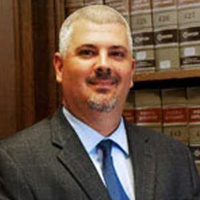 Sussex Felony Lawyers, Virginia
Sussex Felony Lawyers, Virginia
Sponsored Law Firm
-
 x
x

Click For More Info:
-
Randall, Page, & Bruch, P.C.
28319 Southampton Pkwy Suite B Courtland, VA 23837» view mapCriminal Defense Trusted. Creative. Responsive.
Our solid qualifications as individual legal professionals, our well-oiled teamwork and our dedication to our clients’ best interests are hallmarks of our law practice.
800-759-7991
Not enough matches for Sussex Felony lawyer.
Below are all Sussex Criminal lawyers.
Sponsored Lawyers
1-2 of 2 matches
Criminal, Divorce & Family Law, Real Estate, Traffic
At Randall, Page & Bruch, P.C., we are your experienced, local and effective traffic defense attorneys. We focus on traffic offenses, criminal defense, family law and personal injury. I am a former police officer and prosecutor. Let me put my experience to work for you. Jack Randall became acquainted with the need for good advocacy while working for the Virginia Beach Police Department. As a police officer, Jack would have to put on cases for the Commonwealth and recognized that he had an ability to present cases in such a way that judges and other attorneys recommended he attend law school. Having graduated from Christopher Newport University, Jack attended Regent University School of Law during their evening program, while working full-time for the Virginia Beach Police Department. Upon graduation, Jack joined the Southampton Commonwealth Attorney’s Office. As a member of Randall, Page, & Bruch, P.C., Jack brings a wealth of experience and advocacy to protect the rights of the people of Western TidewaterJack has a reputation as an advocate who knows how to get things done. Jack has tried and successfully settled numerous personal injury cases in the Western Tidewater area. Jack also has taken several criminal cases to jury verdicts, including several not guilty verdicts or dismissals. With his Commonwealth background, Jack is a knowledgeable and respected Southampton County DUI attorney. Jack is a member of the Southampton County Fraternal Order of Police (FOP) and is a member of the Bar Associations for Suffolk, Southampton County, and Isle of Wight County. As a resident of Southampton County, Jack is a local attorney who wants the best result possible for his clients. Jack makes himself available to his clients during nights and weekends by cell phone and regularly checks and responds to his emails. Clients can expect accessibility and responsiveness regarding their cases. If you have a new case, call or email Jack for a free consultation.
(more)


 Jack T. Randall Courtland, VA
Jack T. Randall Courtland, VA Practice AreasExpertise
Practice AreasExpertise

